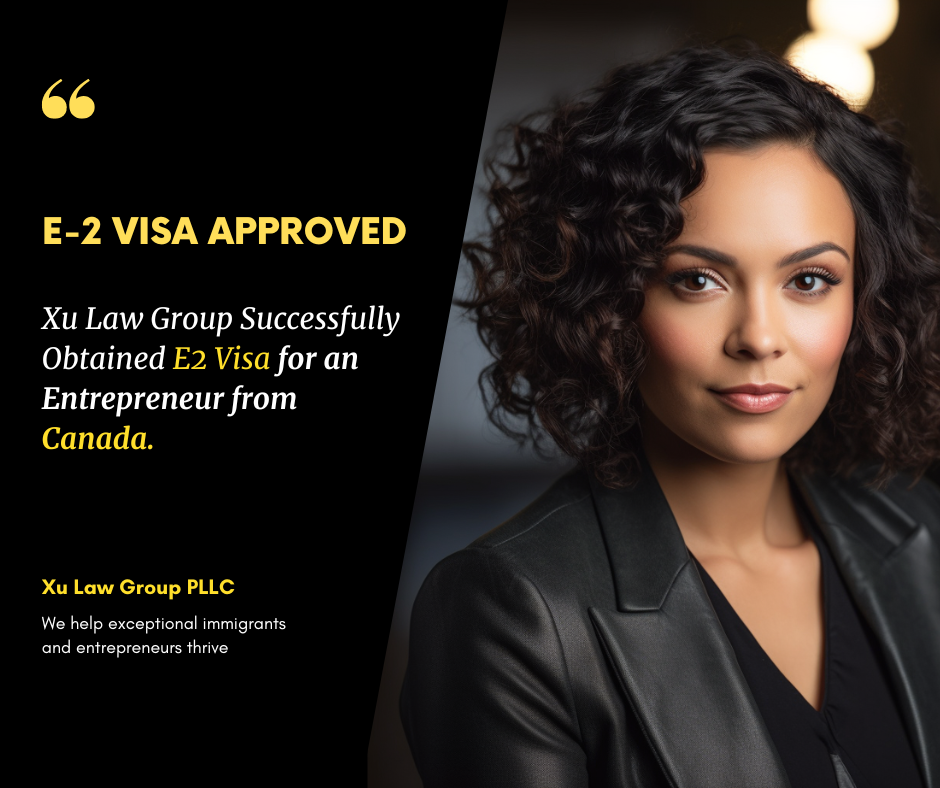
Can I self petition for EB-1A?
The EB-1A visa category offers the advantage of allowing individuals to submit their application independently, without the need for an external sponsor. While the idea of being your own sponsor might sound daunting at first, it's actually a more straightforward process than it appears.
Benefits of being your own sponsor
You can self-petition for an EB-1A visa. The EB-1A visa category is designed for individuals with extraordinary abilities in their field, such as the sciences, arts, education, business, or athletics. Unlike some other employment-based visas, the EB-1A does not require a job offer or employer sponsorship. This means that you can be the petitioner and the beneficiary.
Job Offer Not Required: One of the distinctive features of the EB-1A visa is that it does not necessitate a formal job offer from a U.S. employer. Unlike many other employment-based visa categories, where a job offer is typically a prerequisite, the EB-1A allows foreign nationals to petition for themselves without needing sponsorship or employment ties.
Entrepreneurial Opportunities: The EB-1A visa empowers individuals to explore entrepreneurial ventures and be their own employers. This means that individuals with exceptional abilities can embark on their own business endeavors, startups, or projects that align with their expertise and contribute to the U.S. economy, innovation, or other critical areas. In other words, you can be your own boss!
What you need to know about self petition?
If you qualify for the EB-1A extraordinary ability visa, you may self-petition without a job offer from a U.S. employer. To successfully self-petition for an EB-1A visa, you need to demonstrate your extraordinary abilities through substantial evidence. This can include a combination of major awards, significant contributions, published materials, critical roles, and other achievements that showcase your exceptional expertise.
It's important to note that the EB-1A visa has a high standard of eligibility, and the documentation required to support your self-petition can be quite extensive. Many applicants seek legal assistance from immigration attorneys who specialize in EB-1A visas to help navigate the process and ensure that they present a strong case.
Steps in applying for EB1A by yourself:
Eligibility Check: Determine if you meet the eligibility criteria for the EB-1A visa, which typically requires you to demonstrate extraordinary ability in your field, such as the sciences, arts, education, business, or athletics.
Gather Documentation: Collect evidence to demonstrate your extraordinary ability, such as awards, publications, media coverage, and testimonials. You'll need to provide substantial documentation to support your claims.
Form I-140 Petition: Complete and file Form I-140, the Immigrant Petition for Alien Worker, with the USCIS. This form serves as the foundation of your EB-1A visa application and includes details about your background, accomplishments, and supporting documentation.
Supporting Evidence: Compile a comprehensive package of supporting evidence that showcases your extraordinary ability. This may include recommendation letters, awards, publications, patents, and other relevant documentation.
Written Criteria: Draft a detailed written statement explaining how you meet the specific criteria for extraordinary ability in your field. This statement should provide a clear and compelling narrative of your achievements.
Application Fees: Pay the required filing fees for Form I-140 and any other applicable fees. The fees can vary, so check the USCIS website for the most current information.
Submit Your Application: Mail your completed Form I-140, supporting evidence, and all required documentation to the USCIS Lockbox facility specified in the form's instructions.
Wait for USCIS Response: After submitting your application, you'll receive a receipt notice from the USCIS. The processing time for EB-1A petitions can vary, and you may also be asked to provide additional documentation or attend an interview.
Adjustment of Status (Optional): If you are already in the U.S. on a nonimmigrant visa, you may choose to file an application for Adjustment of Status (Form I-485) to become a lawful permanent resident (green card holder) after your EB-1A petition is approved.
It's important to emphasize that the EB-1A visa application process can be complex and demanding. Many individuals rely on the assistance of experienced immigration attorneys to ensure they present the strongest case possible. At Xu Law group, we will take on every client’s case as if it were our own. Our job is not to only provide legal guidance but to also be here for you.
How can Xu Law Group help?
To ensure a smooth process, it's vital to compile all essential documents and maintain open communication with your immigration attorney. Generally, applicants collaborate with their sponsoring employer or agent to initiate the EB-1A visa application. Attorneys aid in securing recommendation letters from notable figures in the field.
Contact Xu Law Group today for your EB-1A visa. Our team will provide legal assistance and guidance throughout the entire process. We know that this isn’t an easy journey and can be emotionally taxing, but we’re here to help you to achieve success. We believe in building a strong foundation with our clients to ensure that you will get your EB1-A visa, and it all starts with trust.
About the Author:





